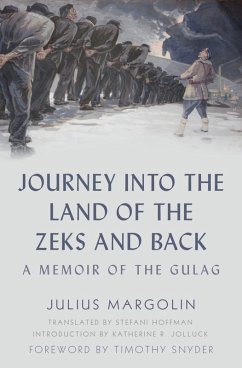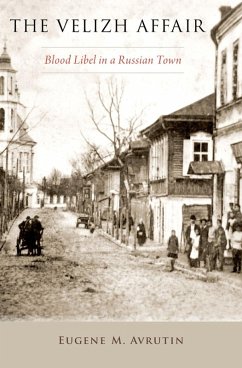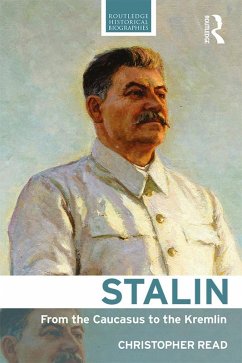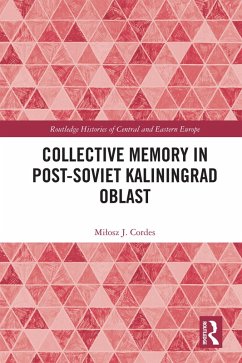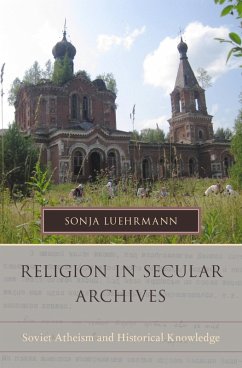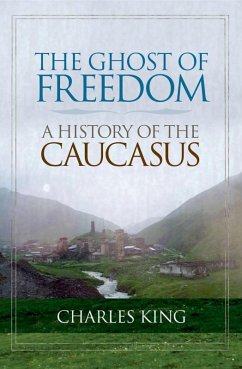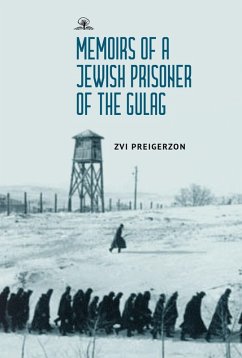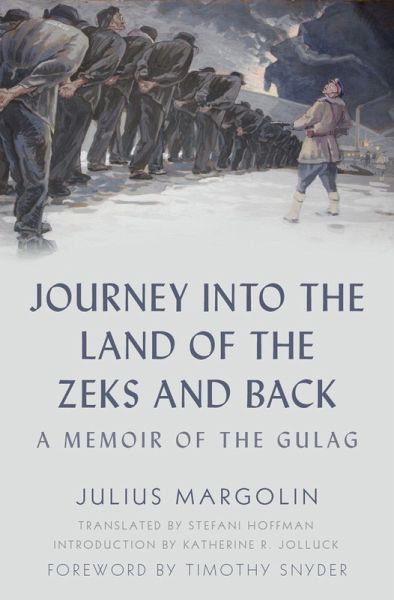
Journey into the Land of the Zeks and Back (eBook, ePUB)
A Memoir of the Gulag
Übersetzer: Hoffman, Stefani

PAYBACK Punkte
7 °P sammeln!
Under the Soviet regime, millions of zeks (prisoners) were incarcerated in the forced labor camps, the Gulag. There many died of starvation, disease, and exhaustion, and some were killed by criminals and camp guards. In 1939, as the Nazis and Soviets invaded Poland, many Polish citizens found themselves swept up by the Soviet occupation and sent into the Gulag. One such victim was Julius Margolin, a Pinsk-born Jewish philosopher and writer living in Palestine who was in Poland on family matters. Margolin's Journey into the Land of the Zeks and Back offers a powerful, first-person account of on...
Under the Soviet regime, millions of zeks (prisoners) were incarcerated in the forced labor camps, the Gulag. There many died of starvation, disease, and exhaustion, and some were killed by criminals and camp guards. In 1939, as the Nazis and Soviets invaded Poland, many Polish citizens found themselves swept up by the Soviet occupation and sent into the Gulag. One such victim was Julius Margolin, a Pinsk-born Jewish philosopher and writer living in Palestine who was in Poland on family matters. Margolin's Journey into the Land of the Zeks and Back offers a powerful, first-person account of one of the most shocking chapters of the violent twentieth century. Opening with the outbreak of World War II in Poland, Margolin relates its devastating impact on the Jews and his arrest and imprisonment in the Gulag system. During his incarceration from 1940 to 1945, he nearly died from starvation and overwork but was able to return to Western Europe and rejoin his family in Palestine. With a philosopher's astute analysis of man and society, as well as with humor, his memoir of flight, entrapment, and survival details the choices and dilemmas faced by an individual under extreme duress. Margolin's moving account illuminates universal issues of human rights under a totalitarian regime and ultimately the triumph of human dignity and decency. This translation by Stefani Hoffman is the first English-language edition of this classic work, originally written in Russian in 1947 and published in an abridged French version in 1949. Circulated in a Russian samizdat version in the USSR, it exerted considerable influence on the formation of the genre of Gulag memoirs and was eagerly read by Soviet dissidents. Timothy Snyder's foreword and Katherine Jolluck's introduction contextualize the creation of this remarkable account of a Jewish world ravaged in the Stalinist empire--and the life of the man who was determined to reveal the horrors of the gulag camps and the plight of the zeks to the world.
Dieser Download kann aus rechtlichen Gründen nur mit Rechnungsadresse in A, B, BG, CY, CZ, D, DK, EW, E, FIN, F, GR, HR, H, IRL, I, LT, L, LR, M, NL, PL, P, R, S, SLO, SK ausgeliefert werden.




